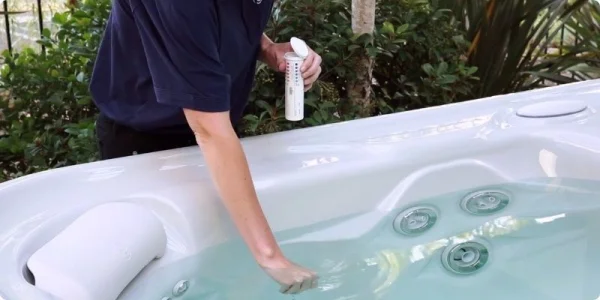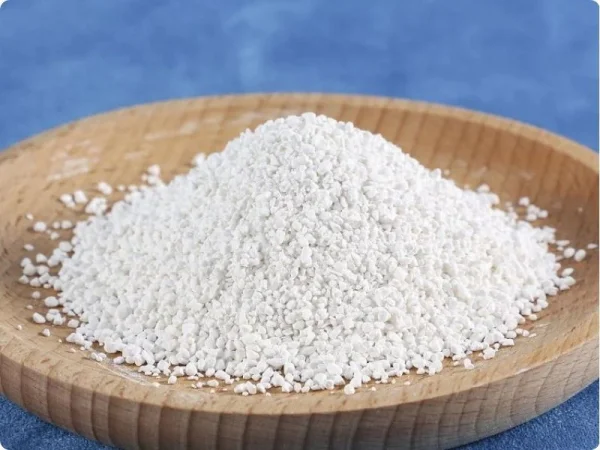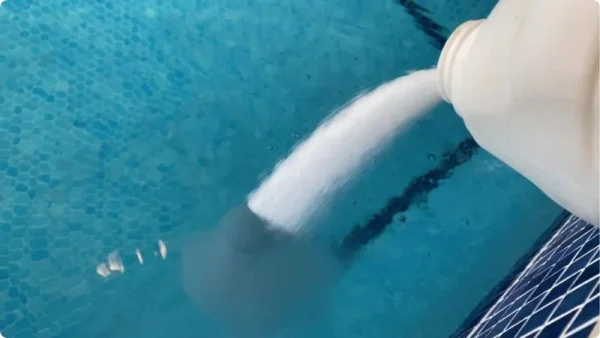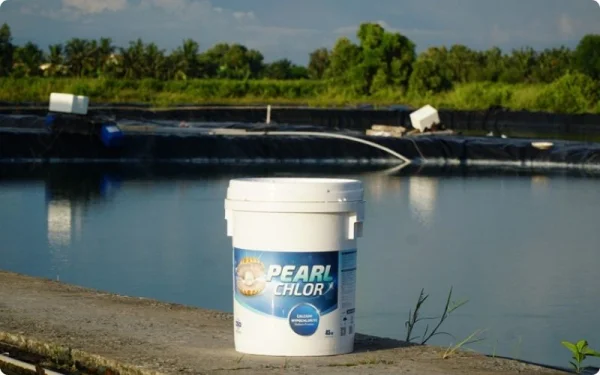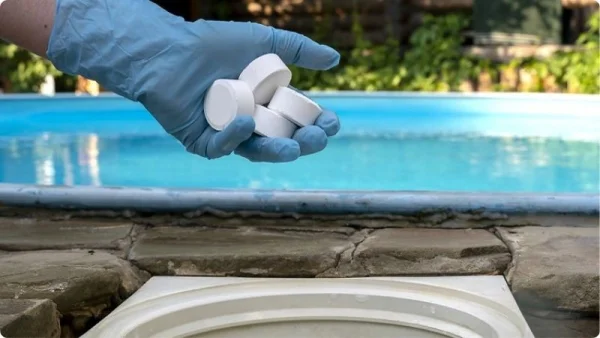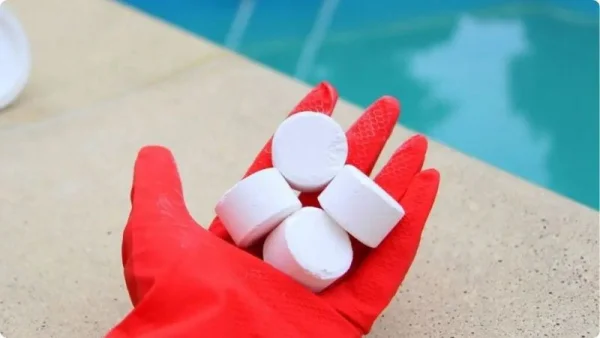
When it comes to maintaining a clean and hygienic swimming pool, chlorine granules, commonly known as calcium hypochlorite or cal-hypo, are an excellent choice. These granular forms of unstabilized chlorine offer a high available chlorine content, making them a powerful and cost-effective option for shock treatments and regular pool sanitation.
What are Chlorine Granules?
Calcium hypochlorite, or cal-hypo, is a granular form of chlorine that is widely used for pool sanitation. It is a white solid composed of calcium chloride and chlorine, with a high available chlorine content ranging from 65% to 73%. This high concentration of chlorine makes cal-hypo an extremely effective disinfectant and oxidizer, capable of killing bacteria, viruses, and algae in pool water.
One of the primary advantages of using chlorine granules is their long shelf life. When stored properly, calcium hypochlorite can remain stable and effective for an extended period, making it a convenient and cost-effective option for pool owners.
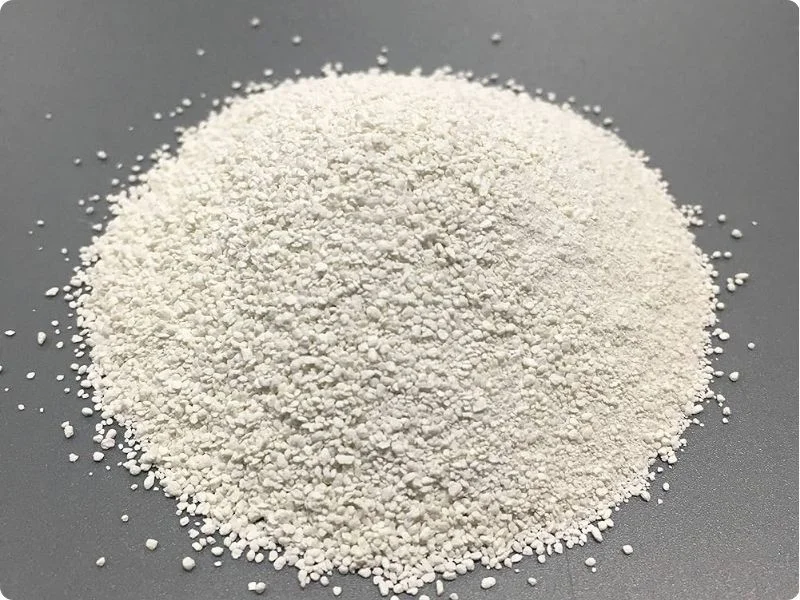
What are Chlorine Granules?
Advantages of Using Chlorine Granules for Pool Sanitation
- High Available Chlorine Content: The high available chlorine content of calcium hypochlorite makes it a powerful sanitizing agent for pool water. This concentration of chlorine is effective in killing microorganisms and preventing algae growth, ensuring a clean and hygienic swimming environment.
- Cost-Effective: Compared to other chlorine-based sanitizers, chlorine granules are generally more cost-effective, especially when considering their high available chlorine content. This makes them an economical choice for pool owners, particularly for larger pools or those requiring frequent shock treatments.
- Long Shelf Life: When stored correctly, cal-hypo have an extended shelf life, ensuring that they remain stable and effective for a longer period. This reduces the need for frequent replacements, saving pool owners both time and money.
- Versatility: Chlorine granules can be used for both shock treatments and regular pool maintenance. They are particularly effective for fresh water pools, providing significant sanitizing capacity and allowing for quick restoration of chlorine levels when needed.
- Compatibility with Salt Water Pools: While primarily used in freshwater pools, chlorine granules can also be used in salt water pools. However, it's essential to follow the manufacturer's instructions and adjust the dosage accordingly to avoid adverse effects on the pool's salt system.
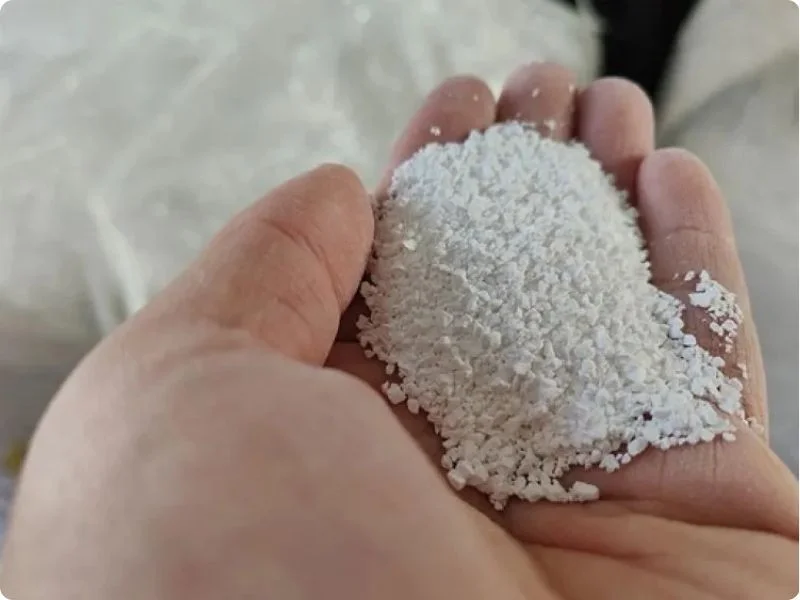
Advantages of Using Chlorine Granules for Pool Sanitation
Proper Usage and Handling of Chlorine Granules
While chlorine granules are an excellent choice for pool sanitation, it's crucial to follow proper usage and handling guidelines to ensure safety and optimal performance.
- Dosage and Application: The recommended dosage of chlorine varies depending on the size of the pool, water temperature, and the desired chlorine level. It's essential to follow the manufacturer's instructions carefully and use a appropriate amount to avoid under or over-chlorination.
Chlorine granules can be added directly to the pool water or dissolved in a separate solution before being added to the pool. Distributing the granules evenly throughout the pool is crucial to ensure proper disinfection.
- Safety Precautions: Calcium hypochlorite are a strong oxidizing agent and should be handled with care. Always wear protective equipment, such as gloves and goggles, when handling this chemical to avoid skin and eye irritation.
Store chlorine in a cool, dry, and well-ventilated area, away from direct sunlight and heat sources. Keep the containers tightly sealed when not in use to prevent moisture contamination.
- Compatibility with Other Pool Chemicals: Chlorine granules can contribute to calcium buildup in pools with high pH levels or hard water, potentially leading to scaling issues. It's essential to maintain proper water chemistry and balance other parameters, such as pH and alkalinity, to prevent scaling and ensure optimal chlorine effectiveness.
- Testing and Monitoring: Regular water testing is crucial to ensure that chlorine levels remain within the recommended range. Use a reliable test kit or pool testing strips to monitor the free chlorine levels and adjust the dosage as needed.
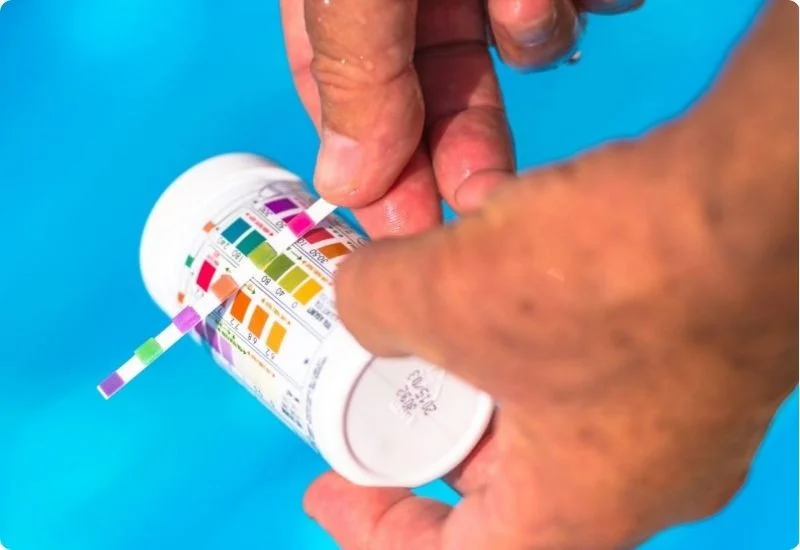
Regular water testing is crucial to ensure chlorine levels
Comparison with TCCA Chlorine Tablets
Another popular form of chlorine for pool sanitation is trichloroisocyanuric acid (TCCA) tablets, also known as chlorine tablets or trichlor. While both are effective sanitizers, there are some key differences between chlorine granules and TCCA tablets.
- Available Chlorine Content: TCCA tablets typically have a higher available chlorine content compared to granules type, with approximately 90% available chlorine. However, this higher concentration does not necessarily translate to better performance in all situations.
- Dissolving Rate: Cal-hypo dissolve and release chlorine into the water more quickly than TCCA tablets, which are designed to dissolve slowly over time. This makes it more suitable for shock treatments or situations where a rapid increase in chlorine levels is required.
- pH Impact: While TCCA tablets can lower the pH of pool water, chlorine granules typically have a more significant impact on raising the pH levels. This means that when using cal-hypo, pH adjustment may be necessary to maintain the desired water chemistry.
- Cyanuric Acid: TCCA tablets contain cyanuric acid, which acts as a stabilizer, protecting chlorine from being degraded by UV rays from sunlight. Cal-hypo do not contain cyanuric acid, making them more susceptible to UV degradation. However, this may be an advantage in indoor pools or situations where cyanuric acid levels need to be managed carefully.
- Convenience and Handling: TCCA tablets are often easier to handle and apply compared to chlorine granules, as they can be placed directly into automatic chlorine feeders or floaters. Calcium hypochlorite may require more manual handling and preparation before being added to the pool.
While both chlorine granules and TCCA tablets are effective sanitizers for pool water, the choice between the two largely depends on the specific requirements of the pool, water chemistry, and the preference of the pool owner or operator.
Conclusion
Chlorine granules, or calcium hypochlorite, are a powerful and cost-effective solution for pool sanitation. With their high available chlorine content, long shelf life, and versatility, they offer an excellent option for maintaining a clean and hygienic swimming environment. However, proper usage, handling, and monitoring are essential to ensure safety and optimal performance. By understanding the advantages and considerations of using chlorine granules, pool owners can make an informed decision and choose the best sanitizer for their pool's needs.
Related Articles
Chlorine vs. Bromine: Which Sanitizer is Best for Your Pool?
Chlorine has long been the go-to sanitizer for pools and spas, but have you heard of its ...
Chlorine Granules vs Chlorine Tablets: Which is Better for Treating Water?
When it comes to treating water for swimming pools, industrial processes, or household uses, ...
A Comprehensive Guide to Chemicals for Pools
When it comes to maintaining a pool, using the right chemicals is crucial for ensuring the water is ...
Exploring the Different Types of Chlorine Used in Water Treatment
Water treatment and disinfection are essential for maintaining the safety and quality of our water ...
Finding the Best Chlorine for Your Pool: A Comprehensive Guide
Chlorine is the backbone of pool sanitation, responsible for killing harmful bacteria, viruses, and ...
How Many Chlorine Tablets for Your Pool? A Step-by-Step Guide to Proper Dosage and Maintenance
One of the most crucial components in keeping your pool water crystal clear and free from harmful ...

